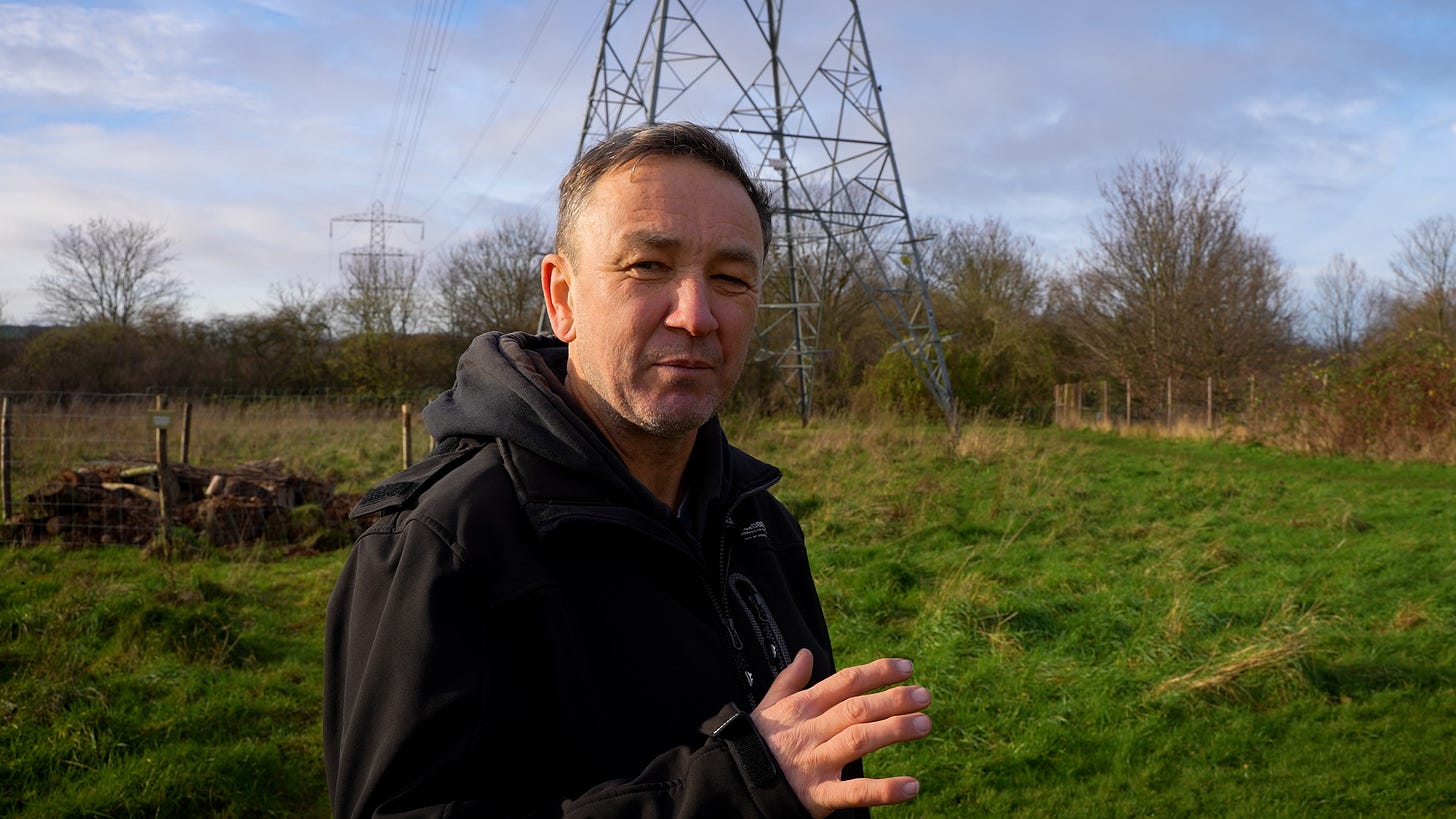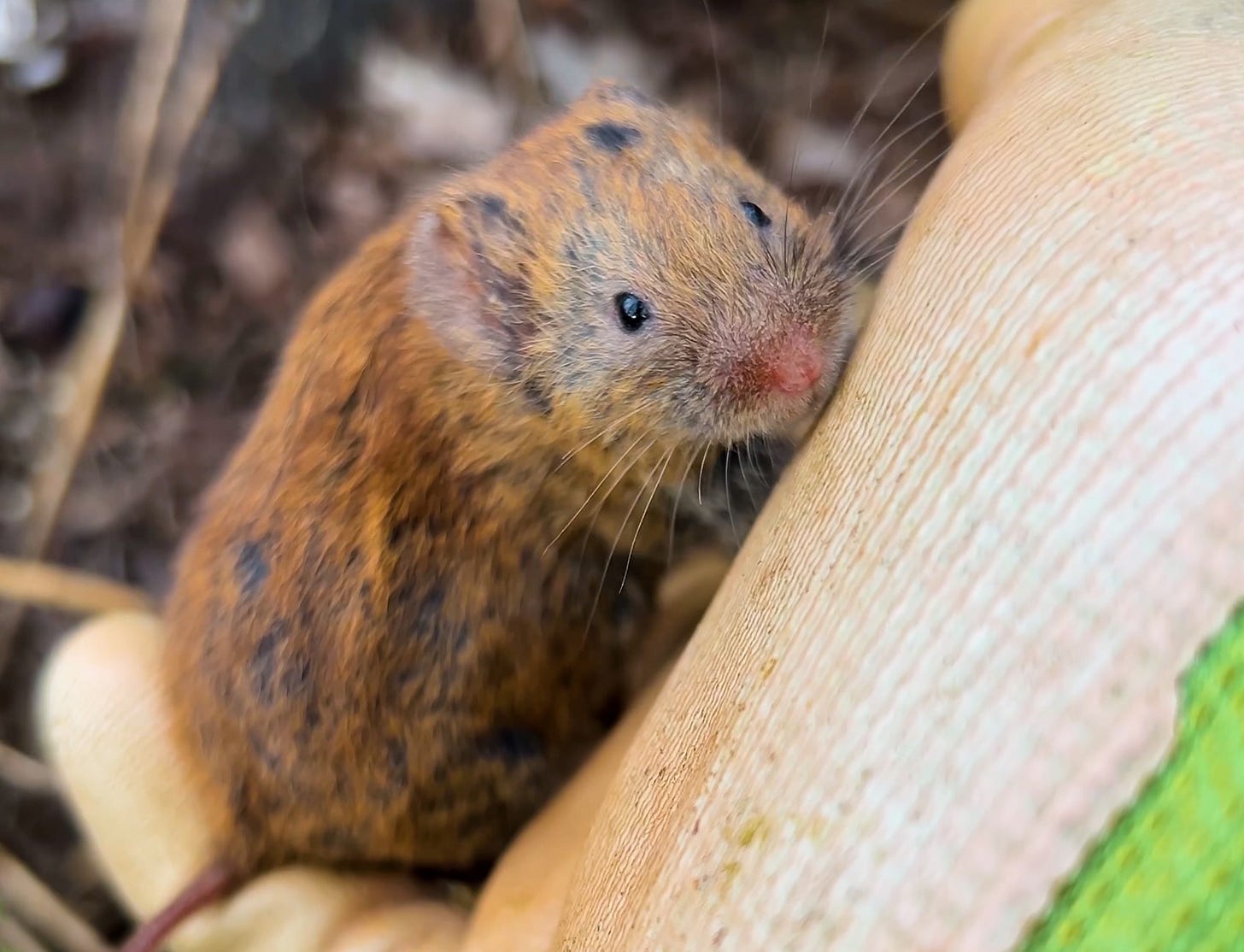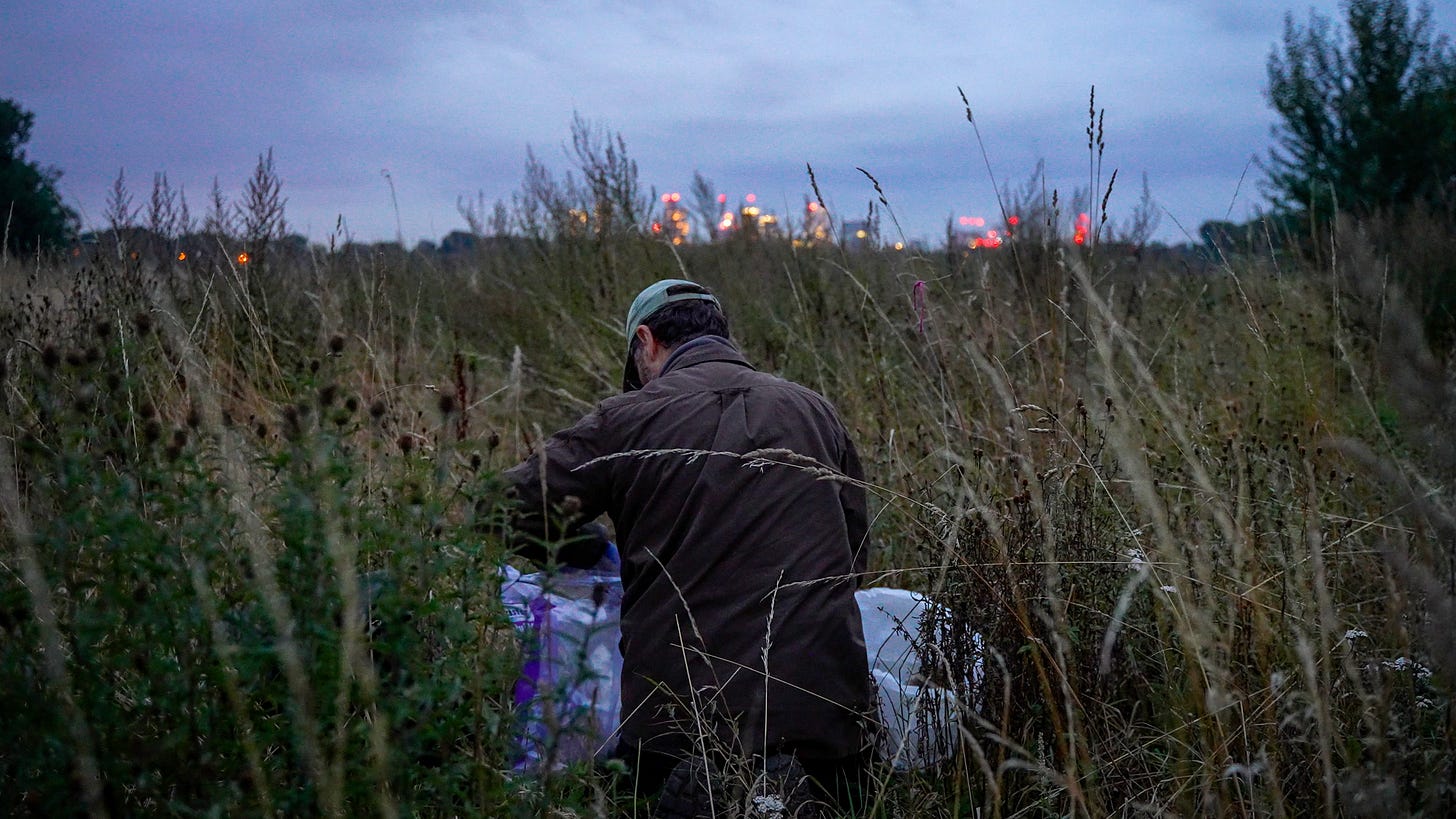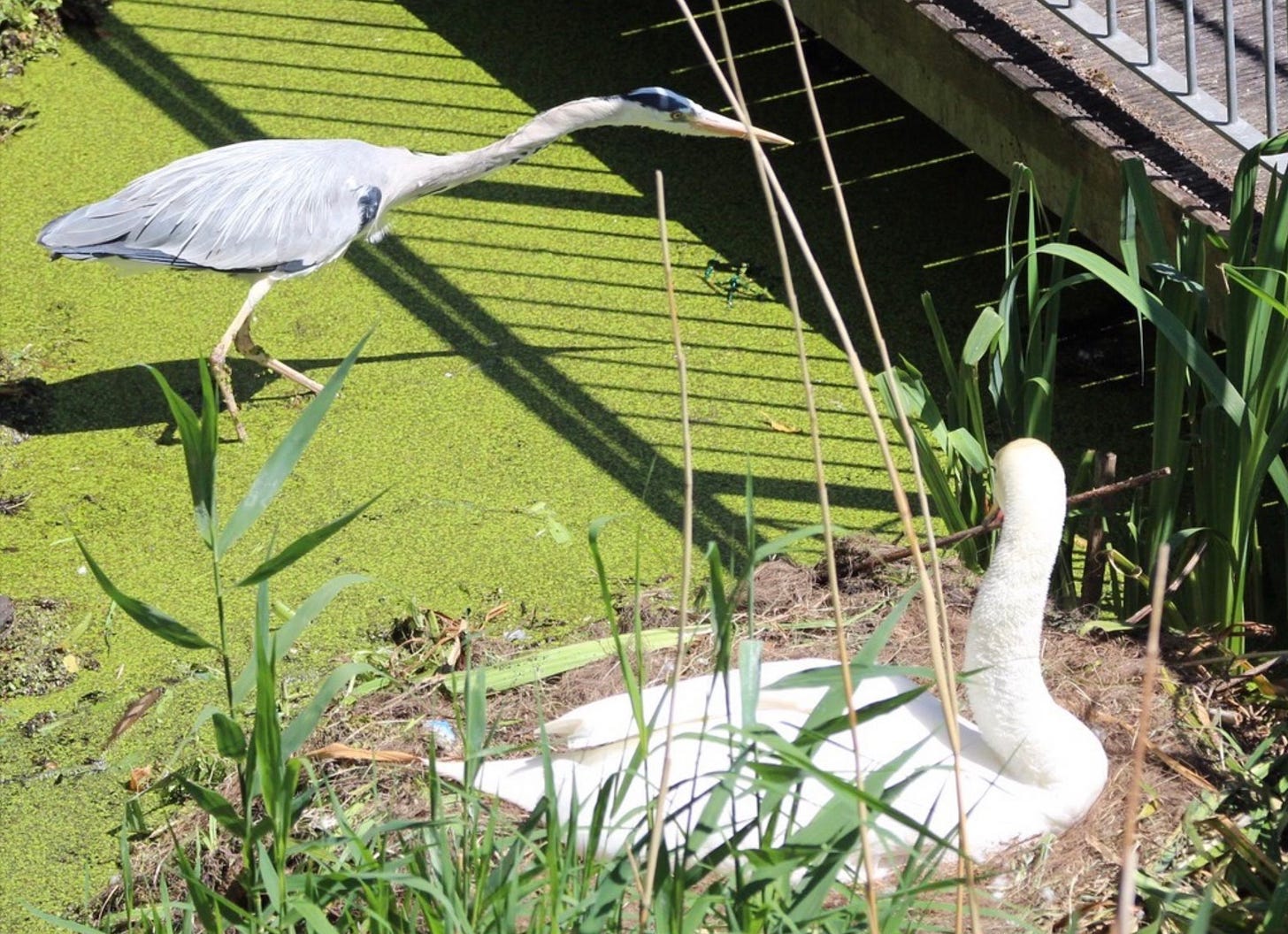How Hackney Marshes became wild again
Local ecologists and volunteers have brought back voles, mice and kestrels to the marshland
The saying ‘if you build it, they will come’ stems from the 1989 film Field of Dreams, in which an Iowan farmer builds a baseball diamond in a cornfield to attract the ghosts of baseball superstars. But it equally befits recent events on Hackney Marshes.
When Ian Phillips, an ecologist and filmmaker, realised in 2020 that the wood mouse population on Hackney Marshes was in terminal decline, he decided to take action. ‘Something had to be done’, he told me, and he banded up with the Wildlife Gardeners of Haggerston and ReNature London to propose a recovery plan to Hackney Council.
With funding from the Mayor of London’s Grow Back Greener fund, the team spent the next few years hard at work. Alongside their restoration of the River Lea, the group turned pockets of Hackney Marshes into a thriving woodland ecosystem. By ring fencing piles of logs and leaves, they created miniature oases for wood mice, shrews and voles: species which had all-but disappeared from the marshes only a few years ago.
Until recently they weren’t sure of their progress. But a recent survey found that the animals are back in abundance. Ian captured their success in a short film, which has been picked up by first The Hackney Citizen before then the BBC.
Short-tailed voles have been spotted on the marshland for the first time in 20 years, and weasels and kestrels are returning to predate upon the surging numbers of mammals. ‘It’s fantastic to have positive results so quickly’, said Russell Miller, an ecologist who has been key to the project. ‘There’s no feeling like it. It’s the best thing.’
Gideon Corby, who co-ordinated and secured funding for the project, said that ‘in the midst of our biodiversity crisis, this project shows what can be done with local knowledge and dedication in partnership with the council.’
Gideon founded the Wildlife Gardeners of Haggerston in 2013 with his partner Esther, when, after moving to Kingsland Basin, they realised the housing managers at L&Q weren’t fulfilling their promises to manage the site. The pair took matters into their own hands, laying aquatic plants and building hedges. It wasn’t long before birds started coming to nest. As more locals started seeing their progress they began offering up their time. Gideon quit his day job, took a Master’s in ecology, and started dedicating himself full-time towards re-greening the borough.
Ian, on the other hand, started out as a snake guy. In the late 1990s, he would sneak into sites to build habitats for grass snakes. After visiting a Thames Water depot one time, he found a fluorescent orange jacket lying on the floor from one of the workers. “So I turned up the next day with that and my dad’s factory hard hat”, he told me. The security at the site never realised, and Ian worked there for years, deep undercover in the foliage, until he’d got the habitats on a fair footing.
With small mammals finally on the rise again at Hackney Marshes, the rewilders are continuing their work elsewhere. ReNature London and the Wildlife Gardeners of Haggerston secured £50,000 to boost wildlife on London Fields, and at Millfields Park Ian’s attention is turning towards hedgehogs.
But it’s not all good news. After years of progress, Gideon says that a change in leadership at L&Q has undone much of their good work at Kingsland Basin. The gardeners received a cease and desist letter from L&Q management, Gideon told me, as the housing association opted to use their own contractors to manage the site instead. “Kingsland Basin has lost a large amount of habitat for wildlife” as a result, Gideon said, and “unless there is a dramatic reversal, these changes will reduce the number of species.”
It can be a thankless task, rewilding. But the success of Ian’s film has given the groups some newfound publicity. The ecologists have had people stopping them on the marshes to ask about their work, and messages of support have poured in from local residents.
Well, mostly they’ve been supportive. As Ian was walking along the canal path at Hackney Marshes, a guy on a bike slowed to offer some feedback, calling out ‘all dog walkers hate you now, you twat!’
‘I take it as a compliment’, Ian told me. ‘I just shouted back, ‘have a nice day, mate!’’, before turning his attention back towards the undergrowth, and the creatures that bustled within.






Viva el voles!